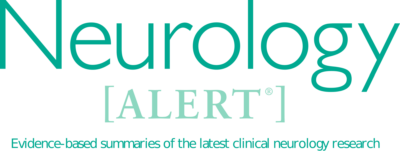
Neurology Alert – March 1, 2020
March 1, 2020
View Issues
-
Neurofilament Light Correlates With Postoperative Delirium Severity
Measurement of postoperative plasma neurofilament light protein (NfL) in plasma appears to have a dose-dependent correlation with delirium severity, independent of inflammation. This observation provides evidence of neuronal injury from delirium.
-
Rituximab for the Treatment of MOG and AQP4 Antibody Diseases
Based on an observational prospective study of 16 patients with anti-myelin oligodendrocyte protein (MOG) disease and 29 anti-aquaporin-4 disease, the authors report lesser efficacy of rituximab in anti-MOG patients, characterized by higher occurrence of relapses in the anti-MOG group, even while the biological effect of rituximab on memory B-cell suppression was sustained.
-
Intravenous Immunoglobulin for Treatment of Autoimmune Epilepsies
Patients with LGI1 and CASPR2 IgG-associated autoimmune epilepsy were identified and randomized to treatment with intravenous immunoglobulin (IVIG) vs. placebo. The authors hypothesized that IVIG would show superiority over placebo, with a primary endpoint of 50% or greater seizure reduction.
-
Cavum Septum Pellucidum and Cavum Vergae: Markers of Chronic Brain Injury?
A cohort study assessing participants from the Professional Fighters Brain Health Study found that the presence of cavum septum pellucidum and cavum vergae is associated with lower regional brain volumes and lower cognitive performance.
-
Are Epidural Steroid Injections Cost-Effective?
In a retrospective review of patients treated for low back pain and lumbar radiculopathy at the Cleveland Clinic, at three- and six-month follow-up, epidural steroid injections were no better than conservative therapies in quality of life measures or overall cost of medical care.
